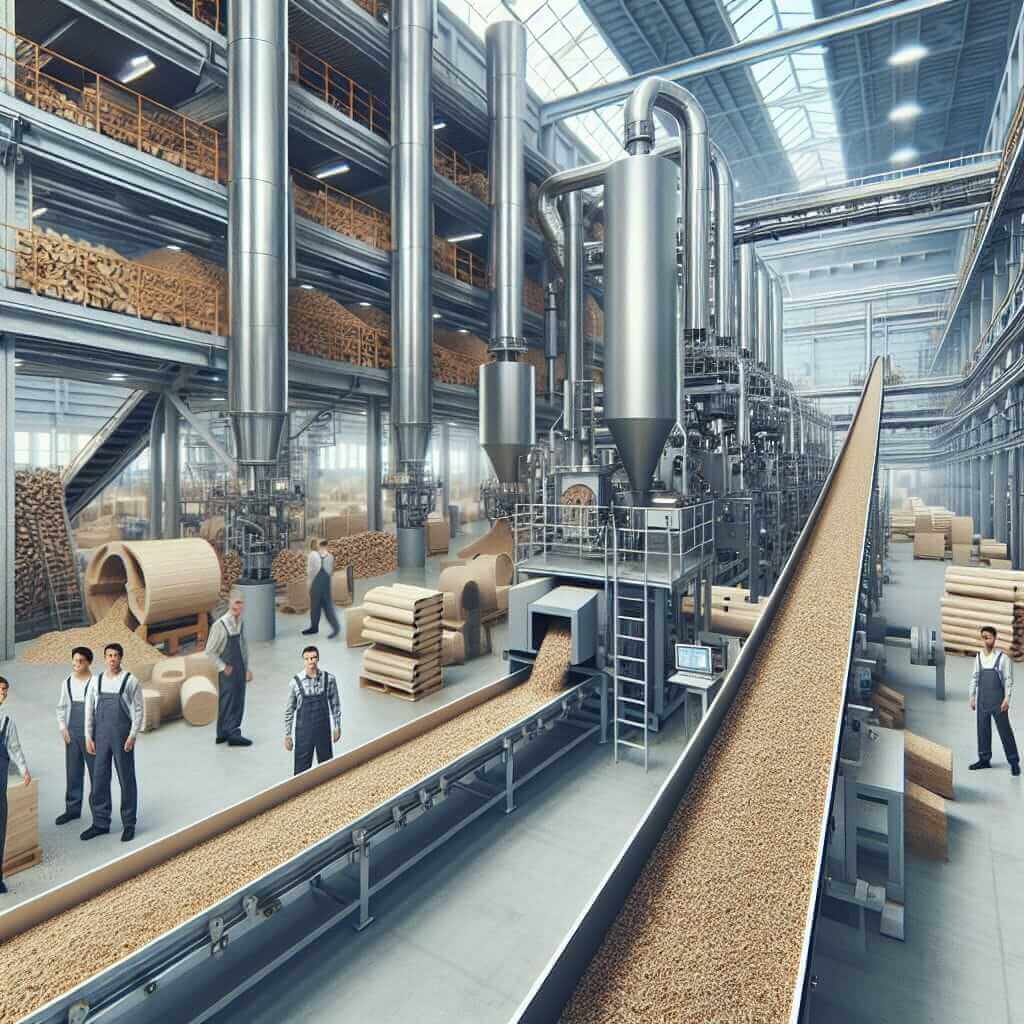As an IELTS instructor with over two decades of experience, I often encounter students who underestimate the power of expanding their vocabulary across a range of topics. One such topic that frequently arises, particularly in the IELTS Speaking test, is the process of making wood pellets. Understanding this process not only equips you with relevant vocabulary but also demonstrates your ability to articulate complex procedures in English, a skill highly valued in the IELTS exam.
Why is Knowledge about Wood Pellet Production Relevant for IELTS?
The IELTS Speaking test assesses your fluency, vocabulary, grammatical range, and pronunciation. Topics can vary widely, often encompassing everyday processes and global issues. Wood pellet production, as a sustainable energy solution, falls under both categories.
Being able to describe this process showcases:
- Vocabulary Range: You can demonstrate knowledge of technical terms related to manufacturing, energy, and sustainability.
- Coherence and Cohesion: Explaining a step-by-step process requires logical sequencing and the use of cohesive devices, both crucial for a high band score.
- Fluency and Pronunciation: Speaking confidently about a less familiar topic showcases your ability to articulate ideas smoothly and clearly.
Breaking Down the Process: How Wood Pellets are Made
Describing wood pellet production effectively requires understanding the key stages:
1. Sourcing the Raw Material:
- Begin by stating the primary material: “Wood pellets are primarily made from sawdust and other wood residues.”
- Highlight the sustainable aspect: “This makes them an eco-friendly fuel source as they utilize waste products from the timber industry.”
2. Preparing the Wood:
- Explain the drying process: “The sawdust is first dried to reduce its moisture content, which is essential for efficient combustion.”
- Use precise vocabulary: “This is often achieved using large industrial dryers.”
3. Pelletizing the Wood:
- Introduce the key equipment: “The dried sawdust is then fed into a pellet mill, which compresses it under high pressure.”
- Describe the formation: “The pressure and heat generated by the mill bind the wood particles together, forming cylindrical pellets.”

4. Cooling and Packaging:
- Mention the final steps: “The hot pellets are then cooled to prevent disintegration and packaged for distribution.”
IELTS Speaking Test Example:
Examiner: “Let’s talk about renewable energy. Can you describe how wood pellets are manufactured?”
Candidate: “Certainly! Wood pellets are a sustainable fuel option made from leftover sawdust and wood residues. This material is initially dried to reduce moisture. Then, it’s fed into a pellet mill, where high pressure compresses it into small, cylindrical pellets. Finally, the pellets are cooled and packaged, ready for use as fuel.”
Tips for Success:
- Practice Describing Processes: Think about other everyday processes (e.g., recycling, coffee making) and practice describing them step-by-step.
- Use Linking Words: Employ connectors like “firstly,” “subsequently,” “afterwards,” and “finally” to ensure a smooth flow of ideas.
- Record Yourself: Speaking aloud and listening back helps you identify areas for improvement in fluency and pronunciation.
- Stay Updated: Be aware of current trends in sustainable energy; this knowledge can provide valuable context in your speaking test.
Remember, confidence comes from preparation. By familiarizing yourself with topics like wood pellet production and practicing your speaking skills, you can approach your IELTS Speaking test with greater confidence and clarity.